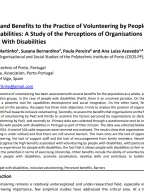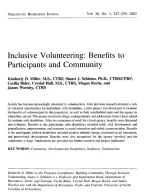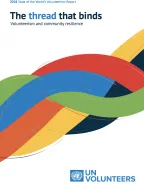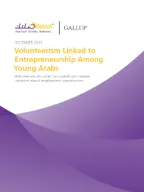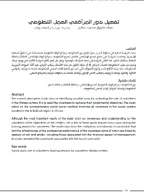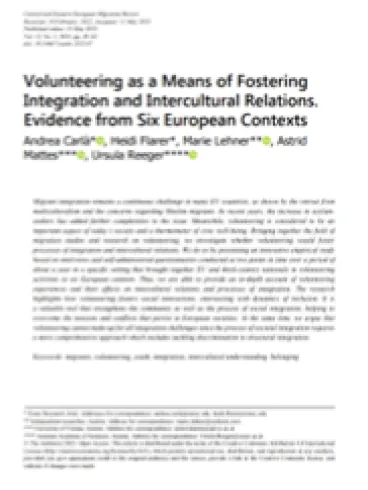
Technical paper
Volunteering as a Means to Fostering Integration and Intercultural Relations. Evidence from Six European Contexts.
Volunteerism
Download
Fast read
This study contributes to the understanding of processes of integration, adopting a bottom-up perspective that focuses on the micro-level and individuals’ experiences. In particular, it examines whether and to what extend volunteering would foster processes of social integration and intercultural relations.
Synthesis
- The study is based on data collected through online questionnaires and semi-structured interviews with a group of 30 volunteers (aged 18-27), composed of EU and third-country nationals, who were selected to carry out volunteering activities in the realms of creative arts/culture and/or sports in six European contexts (Vienna/Austria, Rotterdam/the Netherlands, Zagreb/Croatia, Slovenia, Glasgow/Scotland and the Italian province of South Tyrol).
- Data was collected in two phases, both prior to and towards the end of the volunteering experience.
- The analysis highlights the interaction between formal volunteerism and individuals’ human, cultural and social capital, showing how it affects intercultural understanding and interpersonal contacts, a sense of belonging and skills and processes of empowerment.
- It points to the micro-experience of volunteering as an opportunity and a resource for social integration that fosters social intercultural interactions and sustains people’s empowerment, helping people to navigate in their daily life.
- Volunteering can be seen as a bottom-up beneficial and valuable device that strengthens society and its members as well as the process of migrant integration. At the same time, the visibility of volunteers with a migrant background might help to change perceptions of migration and give a positive image of migrants – presenting them as ‘one of us’, as active citizens who contribute to society – rather than as a problem, as victims, as passive receivers of help or, worse, as a threat and as welfare abusers.













